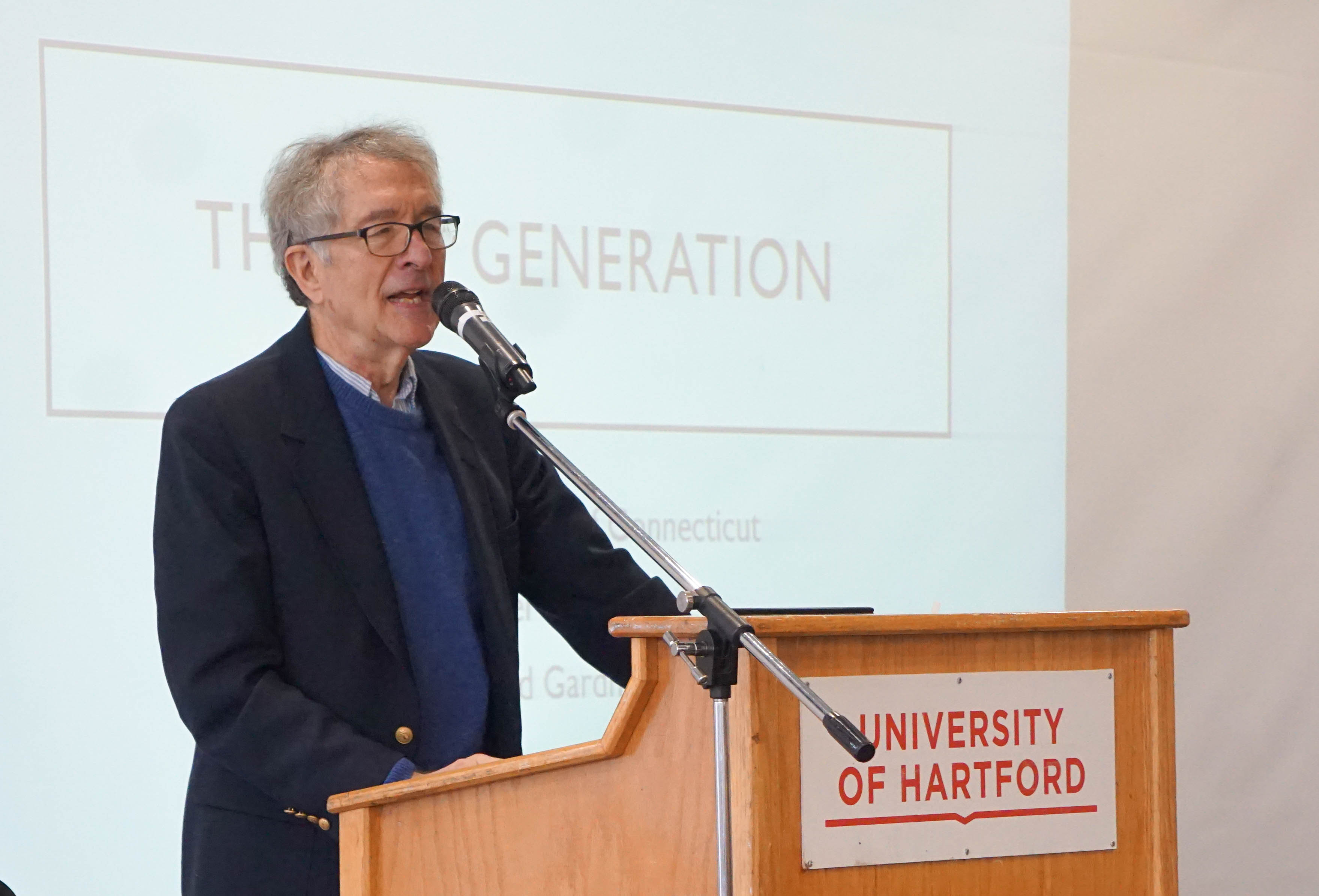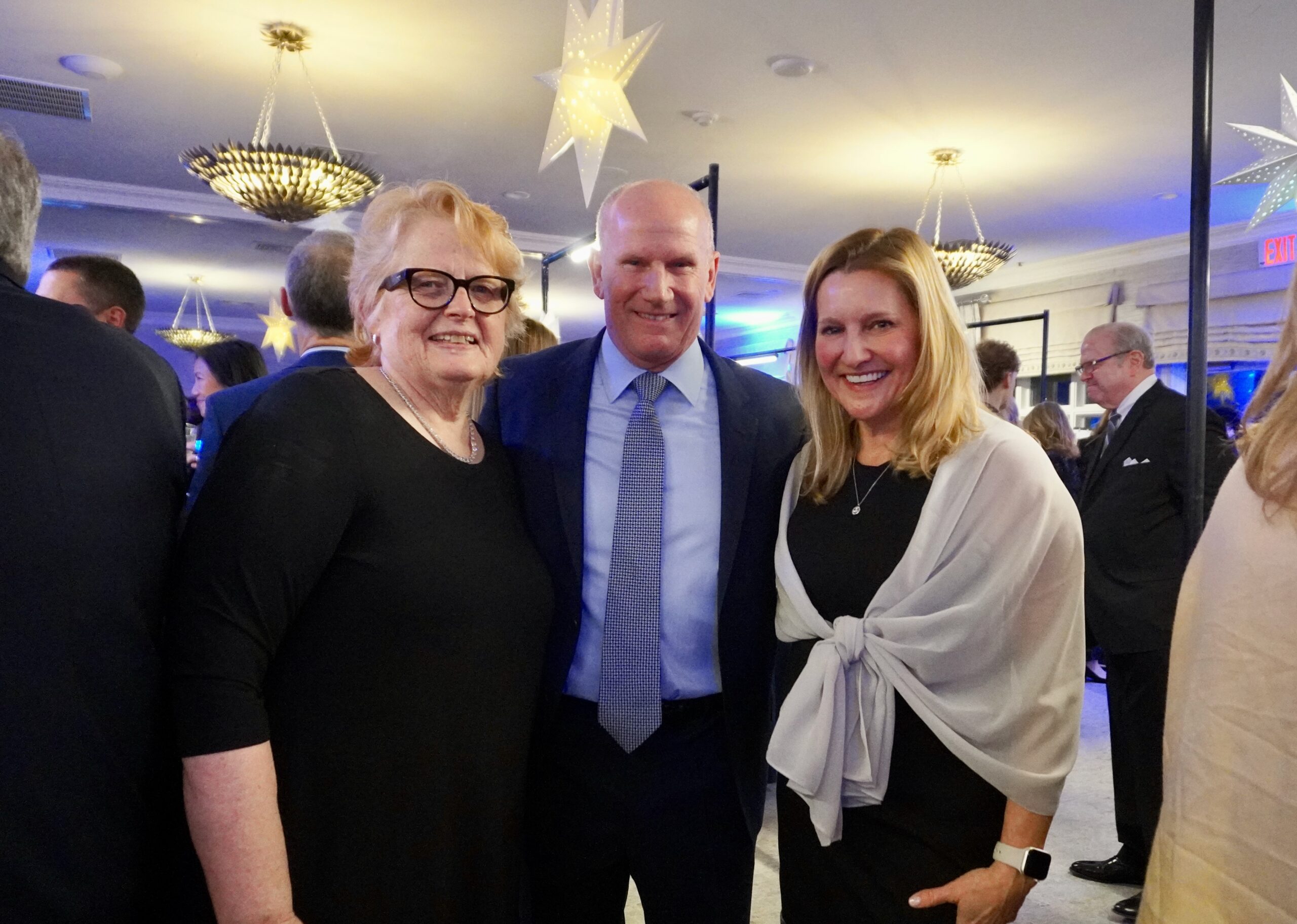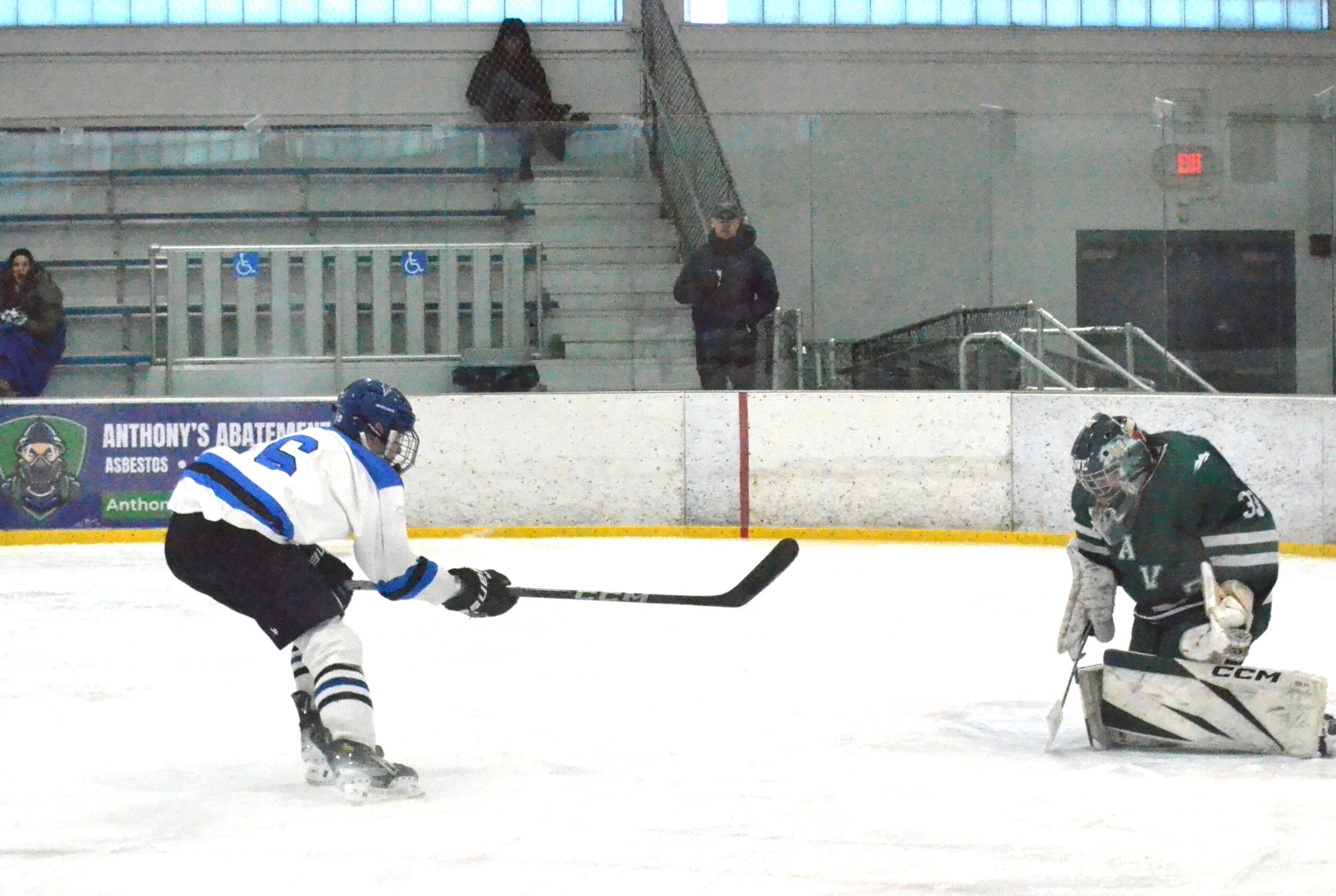Howard Gardner Speaks at Montessori Conference in West Hartford

Audio By Carbonatix

Dr. Howard Gardner presents “From Identity to Imagination: Growing Up in the App Generation” at a Montessori conference at the University of Hartford. Submitted photo
Harvard Professor Howard Gardner spoke about growing up in the ‘app generation’ at the conference at the University of Hartford in West Hartford on Friday.

President of the Montessori Schools of Connecticut and Head of The Cobb School in Simsbury, Mary Lou Cobb, introduces Dr. Howard Gardner, keynote at Friday’s MSC Conference, organized in collaboration with the Center for Montessori Studies at the University of Hartford. More than 350 Montessori educators from across the state attended the event. Submitted photo
Submitted
On Oct. 26, more than 350 Montessori educators from across the state gathered at the University of Hartford for the annual Montessori Schools of Connecticut Conference.
In collaboration with the University’s Center for Montessori Studies, the Montessori Schools of Connecticut (MSC) organized the conference entitled “Guiding the 21st Century Child: Artists, Changemakers and the App Generation.” Teachers and administrators from 22 Montessori schools attended Friday’s event held in the Gengras Student Center at the University.

Mary Lou Cobb and Dr. Howard Gardner. Submitted photo
Mary Lou Cobb, president of MSC, had this to say about the day’s line-up: “We’ve brought together four leaders in their fields to discuss this timely topic. Those of us working with children know we must continuously examine our rapidly changing world and learn ways to best guide the 21st century child.”
Howard Gardner began the conference with the keynote “From Identity to Imagination: Growing Up in the App Generation.”
The Hobbs Professor of Cognition and Education at the Harvard Graduate School of Education, Dr. Howard Gardner is perhaps best known for his theory on multiple intelligences, explained in his seminal work Frames of Mind: The Theory of Multiple Intelligences. Gardner is also widely known and respected for his extensive research on intelligence, creativity, as well as productive and ethical work practices. He is currently the director of Project Zero with its mission to bolster learning in the arts, and co-founder of the Good Project with its quest to study what it means to work in collaborative, effective, and ethical ways.
When asked “Why a Montessori conference?” Dr. Gardner was quick to respond. He said, “I’ve always been interested in Montessori, not to the exclusion of other methods, but I’ve always been interested.” Gardner continued with a smile: “Now it’s personal – my granddaughter is in a Montessori school.” Gardner went on to mention the importance of family, especially at his age, and how he and his wife, Ellen Winner, also a presenter at the conference, prioritize family.
Gardner’s address centered on the claim that generations are increasingly defined by the newest technology. With self-deprecating humor, Gardner admitted that his most recent book, The App Generation, written with colleague Katie Davis and published in 2014, is already out of date. Gardner mentioned two texts as his “teachers”: David Riesman’s The Lonely Crowd and Erik Erikson’s Childhood and Society, books he’s been calling on for half a century. He explained how Erikson’s well-known eight stages of development are still relevant today, and he used the concepts to help illustrate how technology is impacting those pivotal periods of discovery for children, teens, and young adults.
Gardner’s message wasn’t incendiary, but he did posit that today’s mental health crisis among youth might be, in part, a result of their “app mentality,” which he defined as believing the myth that “everything with be smooth and taken care of for you,” much like apps can do. To be clear, Gardner didn’t argue that today’s technology is good or bad. He did, however, contend that “a device can free you or chain you.” He called it being “app-enabled” or “app-dependent.” Gardner concluded with sound advice for the room of educators. Model ways technology makes us independent rather than dependent, and even more important, model ways to function without it. He called it “app-transcendence.”
The annual Montessori Schools of Connecticut conference is always a powerful professional development experience for its attendees. This year was no different. From Gardner’s keynote on the “App Generation” to Dr. Ellen Winner’s lecture “Helping Children Think Like Artists” to the afternoon breakout sessions on supporting children with attention challenges and educating the next generation of changemakers, the daylong event inspired the Montessori educators to return to their classrooms with solutions for today and a vision for the future.
To learn more about the Montessori Schools of Connecticut, visit montessorischoolsct.org. To learn more about the Center for Montessori Studies at the University of Hartford, visit hartford.edu/montessori.
Like what you see here? Click here to subscribe to We-Ha’s newsletter so you’ll always be in the know about what’s happening in West Hartford!



